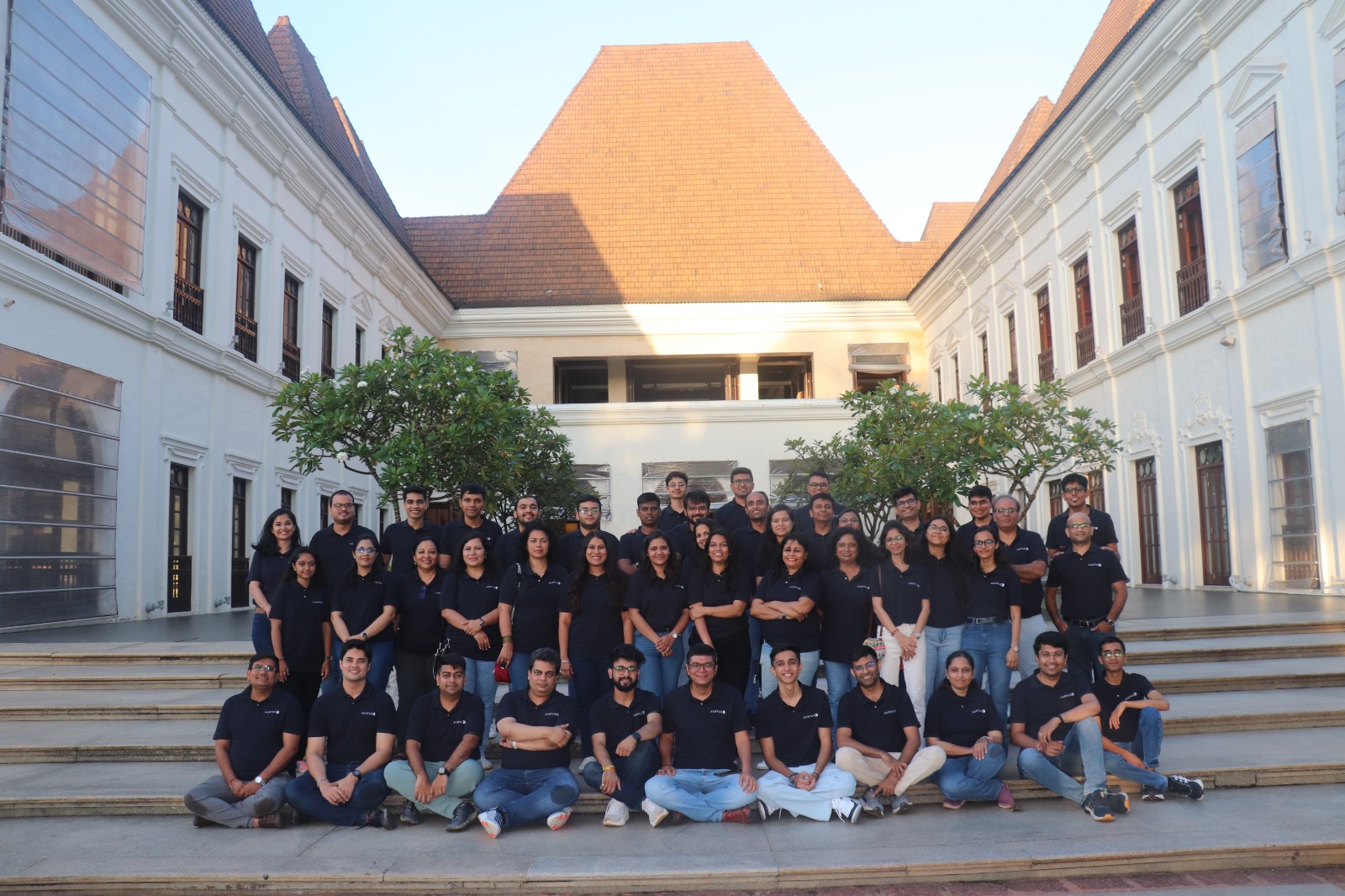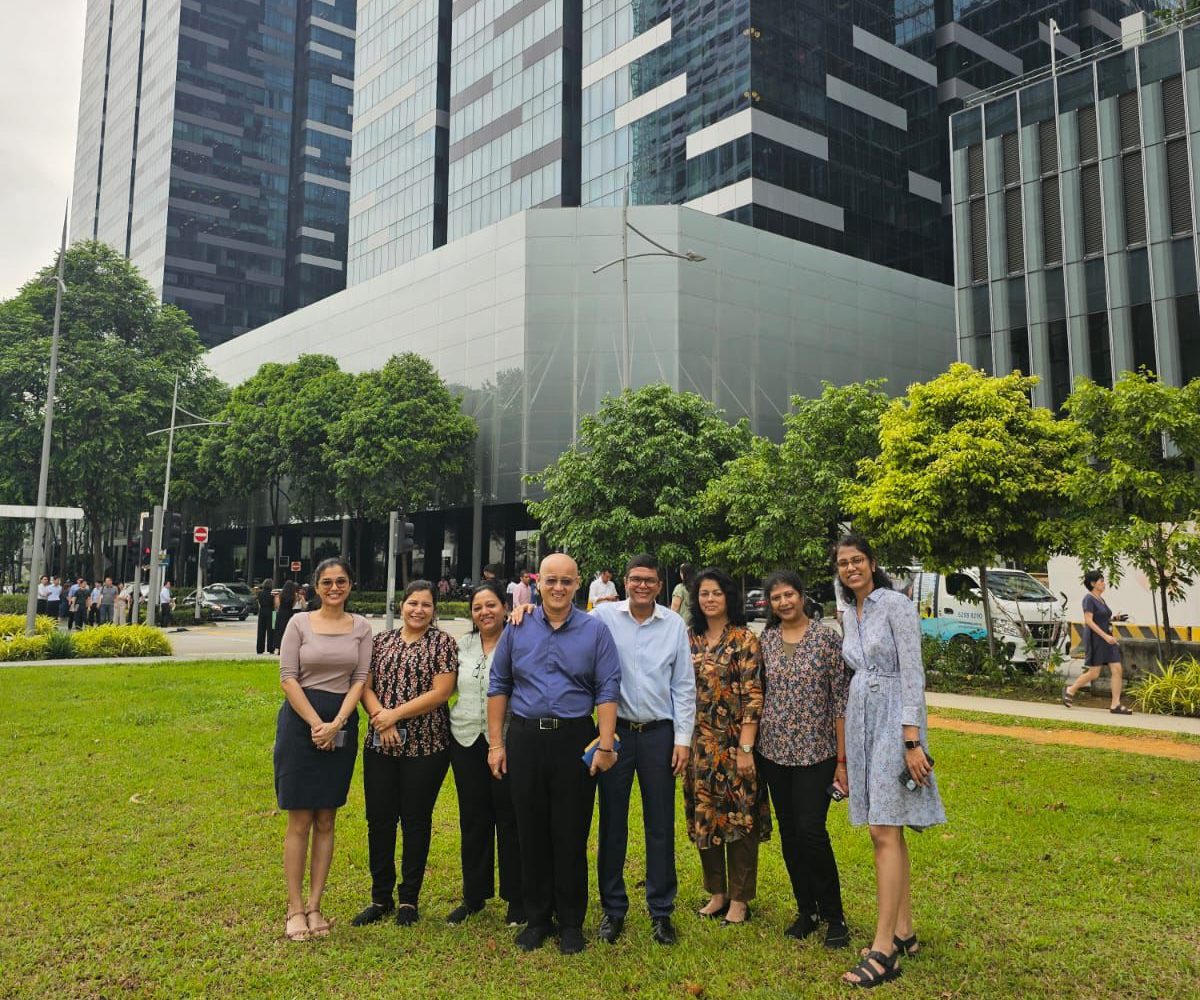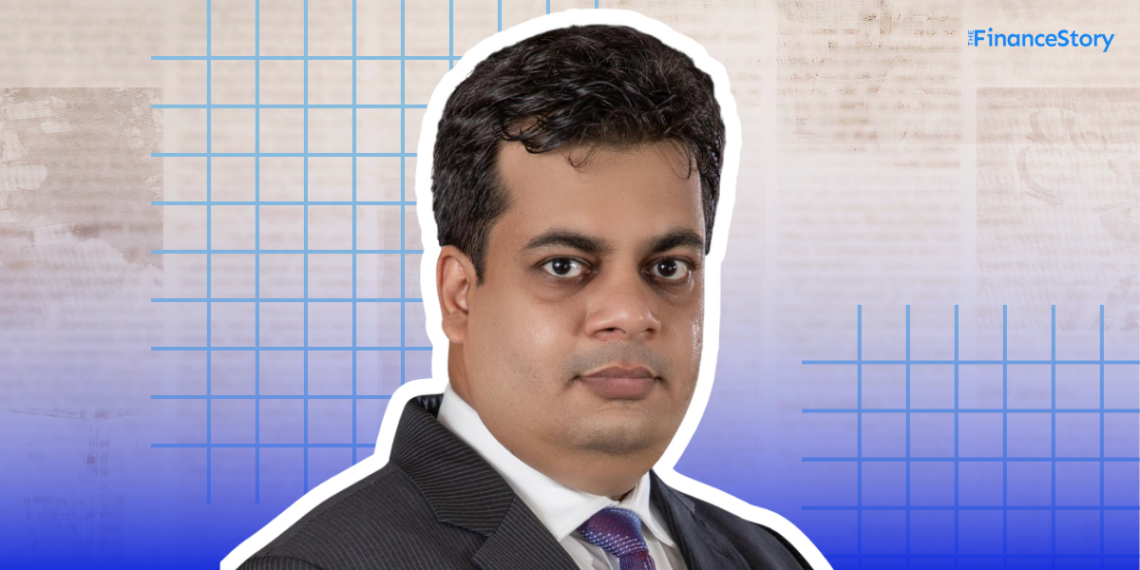- Hi, I am Vishal Gada. After years at KPMG and Dhruva, we co-founded Aurtus, a boutique tax advisory firm, in 2020.
- We aimed for ₹4 crore in revenue in our first year and blew past it!
- What we thought would take years – matching our Big 4 salaries – happened in just two years, with 30-45% bonuses and THREE acquisition offers.
- Now, Aurtus is 70+ professionals strong, with offices in Mumbai, Delhi, GIFT City, Ahmedabad, and Singapore.
Back story: Audit to Tax Partner KPMG and Dhruva
In 2002, as a freshly qualified Chartered Accountant, I started my career at my erstwhile articles firm in Mumbai, in Statutory Audit.
Yes, I dove right into hardcore audit for the first two years…Only to realise that my interest lay in international tax, and hence I joined PwC in tax.
Also, I didn’t last long in my first job, leaving after only 16 months due to a challenging senior.
Thankfully all of this led me to join the Tax team at Ratan S. Mama, which, in my opinion, was the best tax firm I ever worked with.
I learned and thrived there, but eventually, the firm sold its practice to PwC, bringing me back to my former employer.
I continued at PwC from 2007 to 2010, but everything changed after the Satyam accounting scandal.
Many of my mentors and bosses left for KPMG, and I soon followed suit.
My journey at KPMG was transformative. I was tasked with a significant project – to establish their Ahmedabad office. It was a surreal experience to hand-pick my team and build a business from the ground up.
Eventually, I became a Partner at KPMG in Mumbai, but even with the achievement, I felt something was missing. That initial thrill of entrepreneurship kept calling to me.
Then, as luck would have it, the tax leader at KPMG left, and some of us decided to join him, myself included. That’s how Dhruva was born.
Fun fact, the name, an acronym for its five founding partners, DHRVA, includes me as the “V”.
Spotted a huge gap…Quit Dhruva and started a Boutique Tax Firm
I had a wonderful six years at Dhruva, but unfortunately, the original co-founders departed after a few years.
A few of its senior members – Rutul Shah, Zeel Jambuwala, and Jay Parmar – also moved on.
So, I thought, why not start our firm once again? I proposed the idea, and all three of them jumped on board.
Our logic was simple…we were in our late thirties and early forties. So, why not try it for a few years? If it didn’t work out, we could always return to working with larger firms.
But it wasn’t all by chance; our decision was grounded in solid reasons:
- The tax market was growing, dominated by the Big 6, leaving space for firms like ours to make an impact.
- After 12 years in the Big 4, I was ready to create a firm with a different, more flexible approach.
- In India, professionals are often more glorified than firms, leading to collapse when they leave. We aimed to build a brand that outlives its partners.
- Our goal: To become one of the top 10-12 tax firms outside the Big 4, known for exceptional service.
- At a certain stage, money takes a backseat, and the focus shifts to making a meaningful impact.
In 2020, we launched Aurtus, a full-service boutique firm providing well-researched tax, transaction and regulatory services.
Scaling Business Consulting & Tax Advisory firm
Initial Capital
- Started with a modest investment of INR 1,000 and I extended a short-term loan of INR 50 lakh, which my firm repaid within a few months.
- Thankfully, I didn’t need to invest any additional capital.
Building the Team
We have been very cautious about when to hire more people and build more offices.
- Year 1: 12-14 people
- Year 2: 20 people
- Year 3: 35 people
- Year 4: It took us 4 years to reach 70-75 people, and add 2 more offices. We plan to cross the 100-employee mark by the end of this financial year.
Talent Retention
- Over the last 4.5 years, only two people have left Aurtus to join our rivals, even among senior staff.
- Most other departures were due to personal reasons, like moving abroad or career transitions, joining their family firms.
- One of our biggest challenges, however, has been the talent shortage in the market.
Financial Performance
- Our first-year revenue target was ₹4 crore. Safe to say—we completely undershot it!
- I honestly thought none of the partners would see substantial earnings for at least the first two years… but we started earning from DAY ONE!
- Our bonuses in those first two years? A remarkable 35-45%!
- Why? Minimal overhead, robust revenues, and no need for financial sacrifices. The outcome? Thrilled Aurtus members all around!
Expanding Offices and Teams
- For the first 2.5 years, we operated from WeWork, having launched just before COVID.
- Post-COVID, we shifted to our own spaces—starting in Ahmedabad, then Mumbai, and now expanding to Delhi. GIFT City is still a co-working spot for now.
- In early 2023, Ritesh Kanodia joined us along with his senior team to significantly strengthen our Indirect Tax practice.
- In 2023, we launched our Singapore office. Pure luck? Maybe. My partner there, Mahip Gupta was my ex-boss! He started his firm, we reconnected, and within a week, decided to merge practices.
- Looking back, it was one of our best moves. The synergy between Aurtus India and Aurtus Singapore has been incredible!
Securing Clients
We informed our clients, and apart from a few, almost everyone signed up with us.
It was a clear sign that tax is a sticky business when clients are happy – they don’t care about the brand, as long as they’re working with the same team.
More importantly, clients are now realizing that smaller firms can often provide deeper, more personalized insights than the large ones.
Profit margins
You can play at 10%, or aim for 40%. For a reputable consulting firm, gross margins of 30-40% are standard.
It’s all about how you position yourself. For us, we’ve set clear boundaries – our minimum margins are non-negotiable.
Many times we bill more than the Big 4s!
Talent, in particular, is becoming more expensive.

Our Services at Aurtus
Our expertise and true strength lie in tax, and that’s where we choose to stay focused.
Due diligence, for example, is a branded field, so we don’t prioritize it in our offerings.
We’ve also chosen not to handle valuations ourselves, even though they complement M&A work. Instead, we collaborate with trusted valuation partners.
Despite frequent client requests, we’ve stayed out of the audit space.
Aurtus may appear to be one business, but in reality, it consists of 8 to 9 businesses combined.
- Corporate and International Tax: Our foundational service, offers strategic tax advice across corporate and international tax matters.
- M&A Tax: Assisting clients with the tax implications of mergers and acquisitions, guiding them through tax-efficient structures.
- Litigation: Litigation is a growing pillar for us. With leaders like Chintan, Ritesh, and Meetika—who joined us from a prestigious law firm—we cover complex tax litigation matters comprehensively.
- Indirect Tax: We provide GST and customs litigation services, an area that’s expanding quickly in response to regulatory developments.
- Regulatory Services: This includes advisory on FEMA, RBI, and SEBI compliance, helping clients navigate India’s regulatory landscape effectively.
- Transfer Pricing: Anticipating the impacts of Pillar 2 regulations next financial year, we are actively building out our transfer pricing services with increased investments.
- Family Office Services: This area has experienced surprising growth. We manage over 50 to 60 prominent families, providing private trusts, succession planning, and HNI planning. To support this, we are establishing Aurtus Aspire – a division dedicated to individual clients, separate from our corporate services.
- GIFT City Advisory: We focus on establishing funds and family offices for international clients in GIFT City and support Indian entities with global expansion plans.

Looking at the future
AI and Tax Advisory
At present, we’re exploring how AI can enhance the effectiveness of our services and accelerate deliverables.
However, we’re also considering whether AI could become a standalone product.
The market for that is huge, and I don’t see any comparable products being launched in India yet.
We’ve been debating internally and have a blueprint ready that we plan to launch next year.
The idea is to explore something like Aurtus Digital, which will be our focus for the next 12 to 24 months.
Now this would require significant investment, unlike our tax practice which we bootstrapped.
Global Expansion Plans
Singapore
Our Singapore office has grown to over 20 team members, with a few members based in India.
Mahip, a former colleague, now leads our Singapore operations, bringing synergies between Aurtus India and Aurtus Singapore.
UAE
UAE is a great market to be in and our expansion to Dubai is on the horizon, will complete this triangular access between India, Dubai, and Singapore.
We are working to find the right local leader and expect to establish our presence there soon.
USA
We aim to eventually enter the US market. However, given its complexity and investment needs, we are first focusing on strengthening our India, Singapore, and Dubai connections.
Are PE investments the future of advisory firms’ growth?
About a year ago, while helping an investment bank structure a deal, a Partner pointed out that tax firms, like ours, have a more stable business compared to deal-driven firms.
He wondered why tax firms aren’t valued more, given our steady organic growth.
I agreed and highlighted that overseas firms like Ryan (a US-based tax firm) are backed by private equity.
Even KNAV recently received investments from people like Nikhil Kamath, showing the trend is catching on in India.
We’ve had three acquisition offers in just the past two years—and turned every single one down!
Why? Because our value just keeps going up, and we’re not done yet!
Also, consolidation outside the Big 4 is coming, and we’re preparing for it.
How do clients view tax consulting at non-Big 4 firms?
In the audit space, branding plays a huge role. However, tax is a value-added service where the client doesn’t need to shout about who’s advising them.
Yes, a Big 4 report may be necessary for something like due diligence in a major transaction, but clients often prefer boutique firms for personalized, high-quality advice.
The key difference is that tax advice doesn’t depend on the firm’s size.
Clients are now more mature. They understand that a small, specialized firm can often provide better advice than a larger organization. It’s all about building one-to-one relationships.
And the opportunity is genuinely huge!
(Edited by Preeti Mondal)








I wish VISHAL and his team the very best. As a former Big 4 tax partner what we need to recognise is that the scale at which the Big 4 operate in India in the tax field is next level some BIG 4 firm’s are doing 2000 crore a year in tax , so and many Big 4 tax partners are in the 10 to 20 cr a year pay bracket so their is really no real comparison between the two models.
Thanks Vishal for the insights.
Would love to connect with you and write more on this. It would bring a lot more insights to our community folks!
It is great to see Aurtus and team growing, but I hope that Finance Story has a balanced approach with stories that appear to be promotional. Adequate relevant disclosures are key to reader trust, especially while covering specific persons/firm.
It would have been great had Finance Story covered overall industry perspective, including stories of other such professionals/firms.
Hi Hiten thanks for the message. I am the founder of The Finance Story and NONE of our articles are promotional or paid. We are building and since the last 3 years quite successfully built a community and career focussed media platform for finance professionals.
Our goal is to enable mid to senior finance folks made better decisions considering the India opportunities we have.
Yes, we make reveneue by providing recruitment services which we are very soon going to integrate with AI in The Finance Story.
In short, be rest assured that zero of our articles are paid or promotional and we invest hours to find the right story!
Thanks
Thanks for the clarification. Wishing the best.
Nice reading your story. Keep up the entrepreneurial spirit. Congrats. Let’s not get oversold to the Big 4 or 5 … just because they shout a lot and consider themselves a species apart ..
What did you do to retain talent?
Quite inspiring to read that story as a fresher CA and to know how one can accelerate the career trajectory.